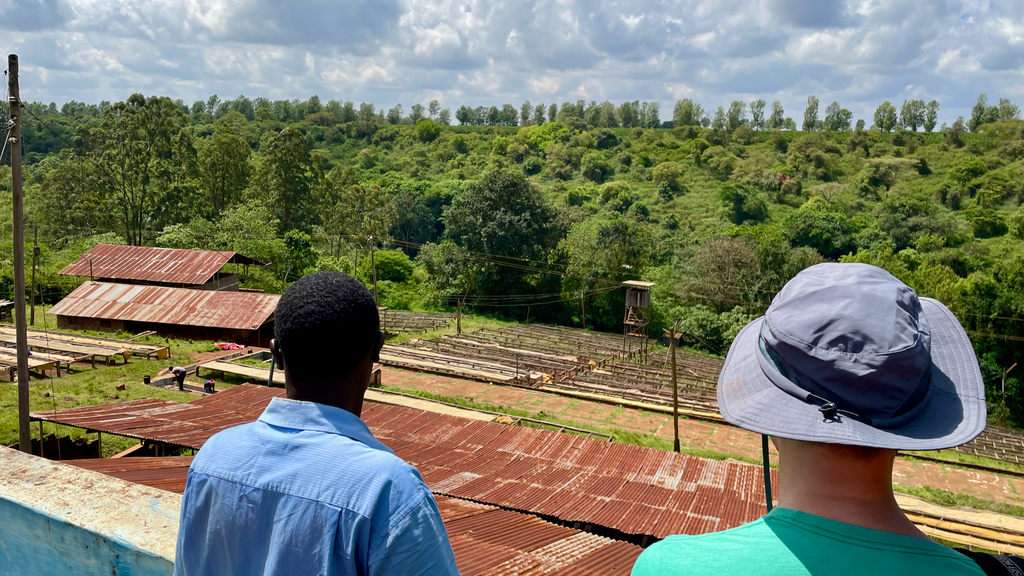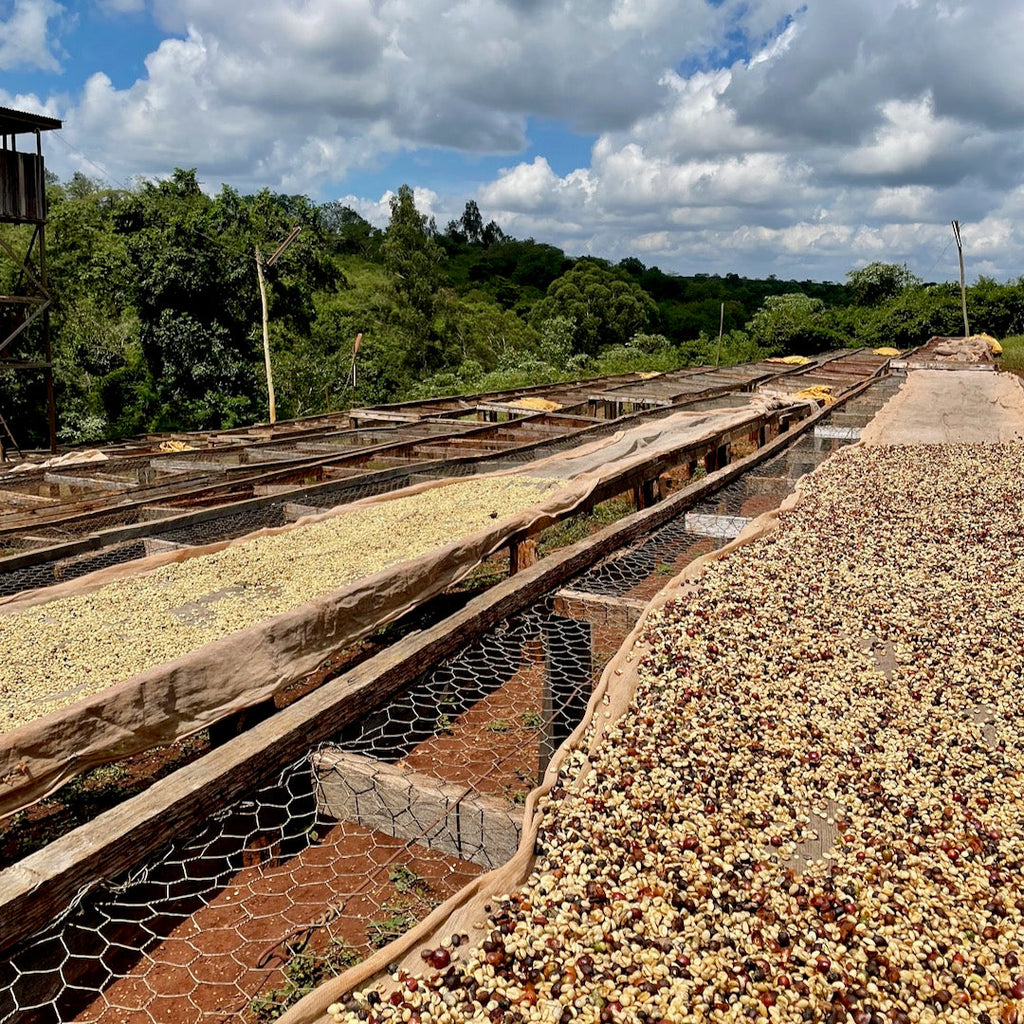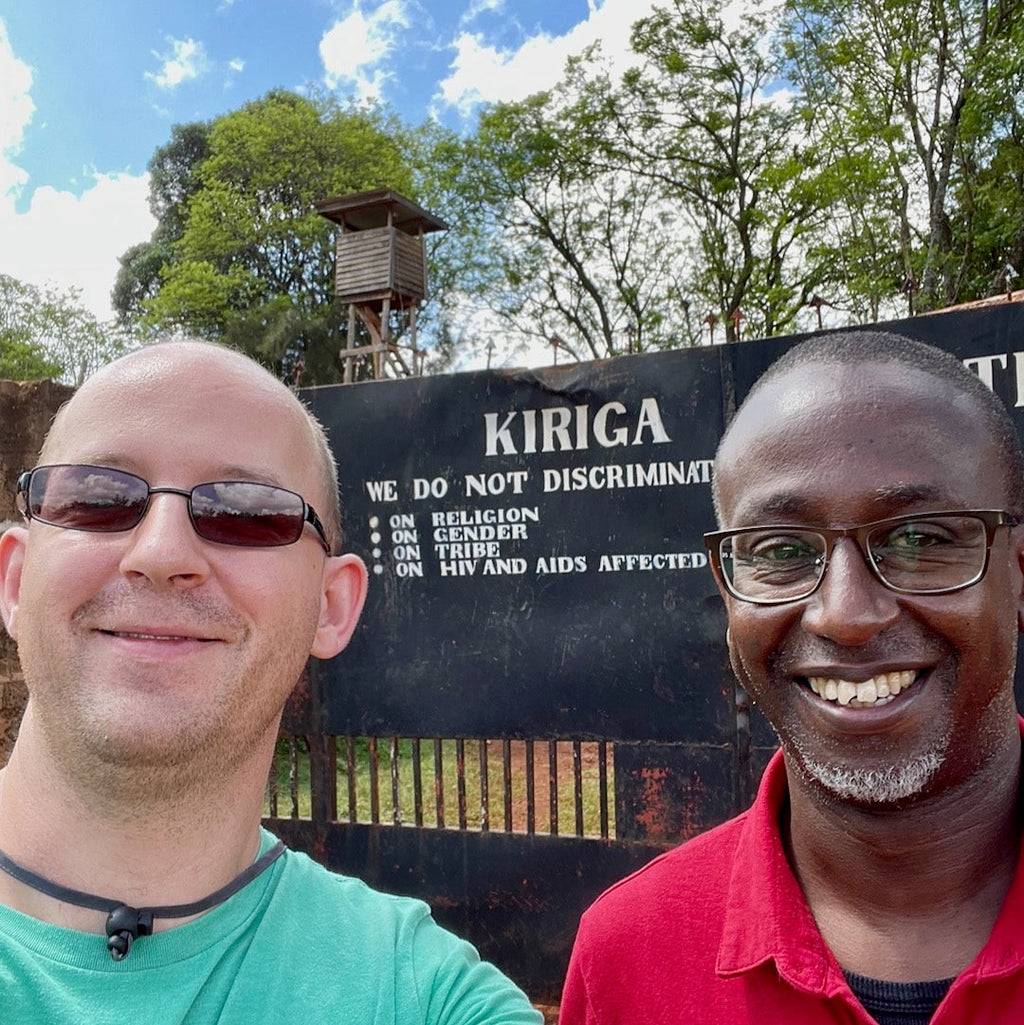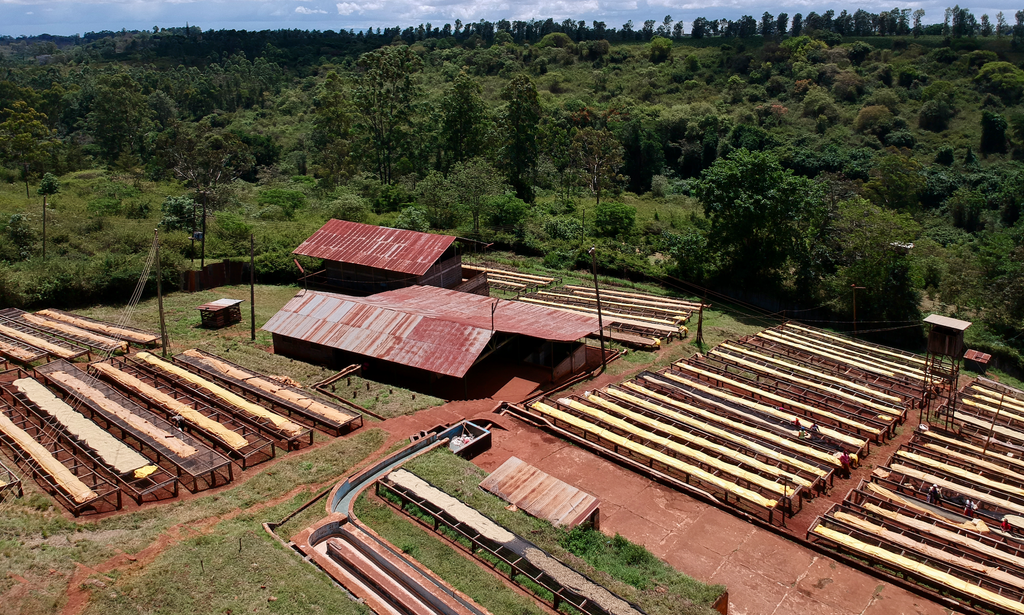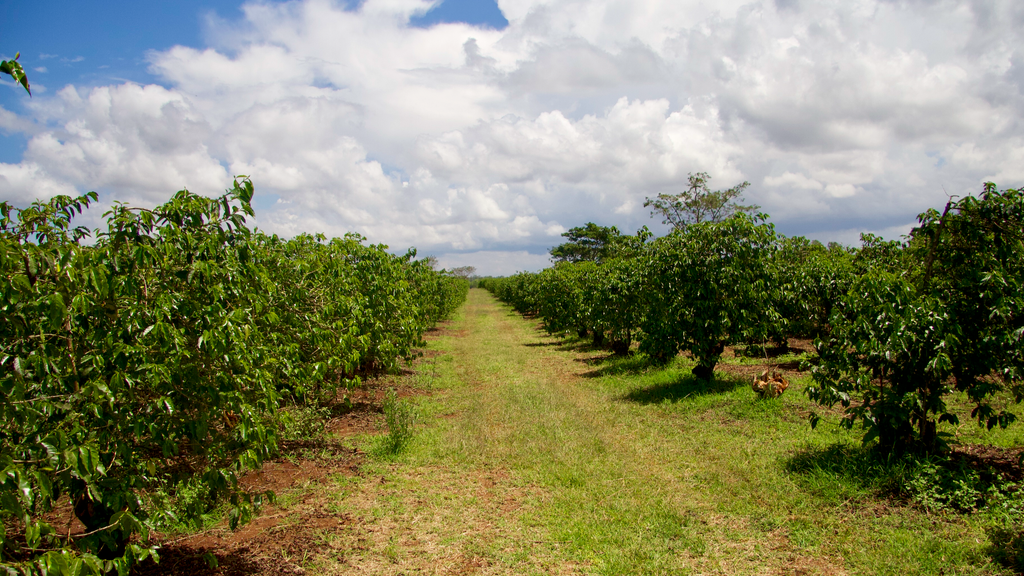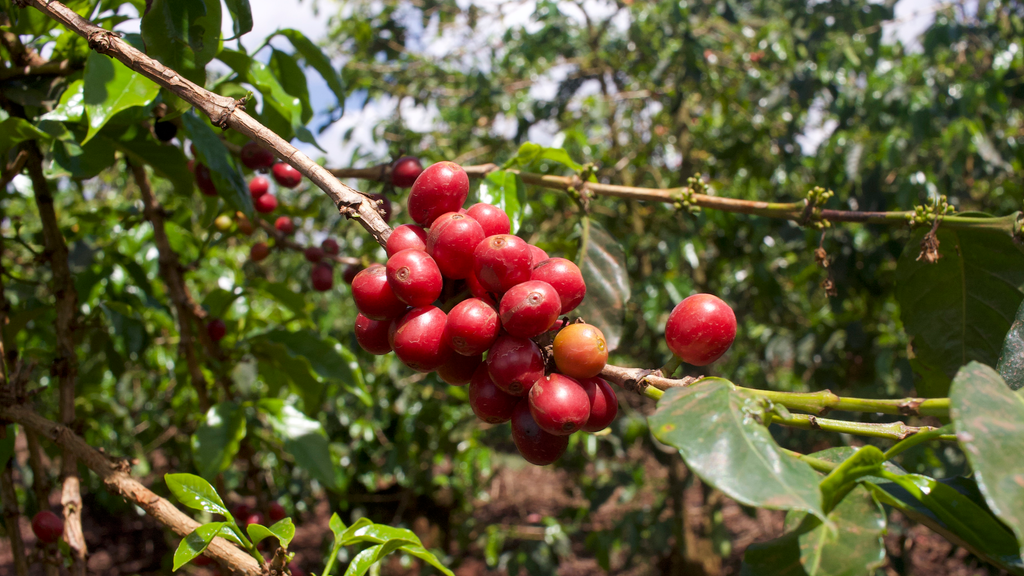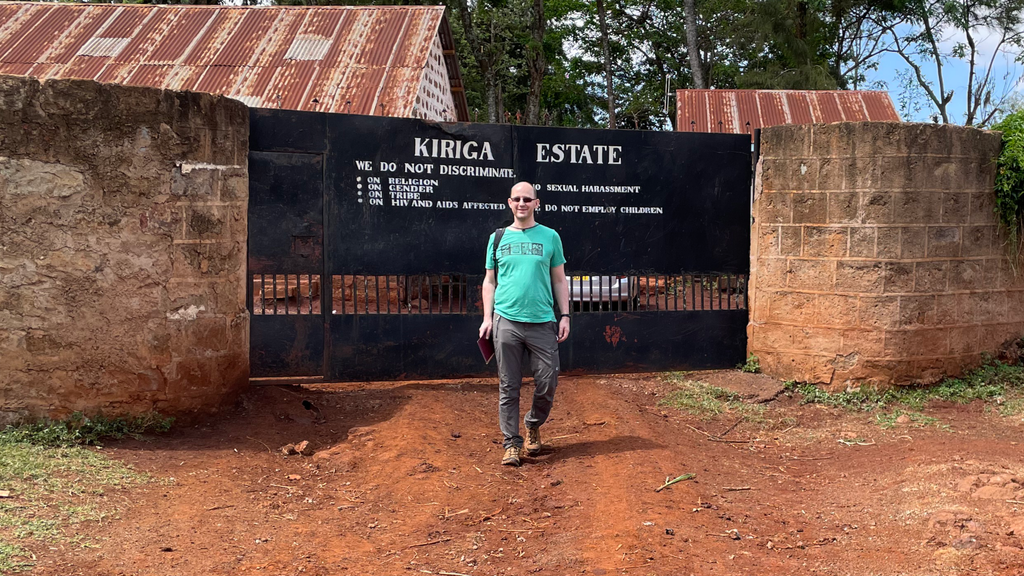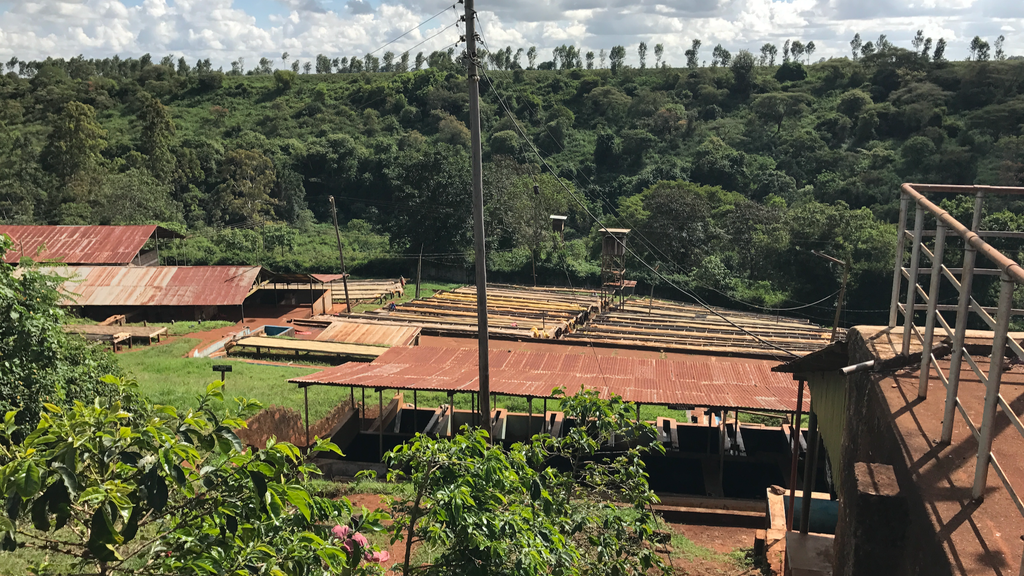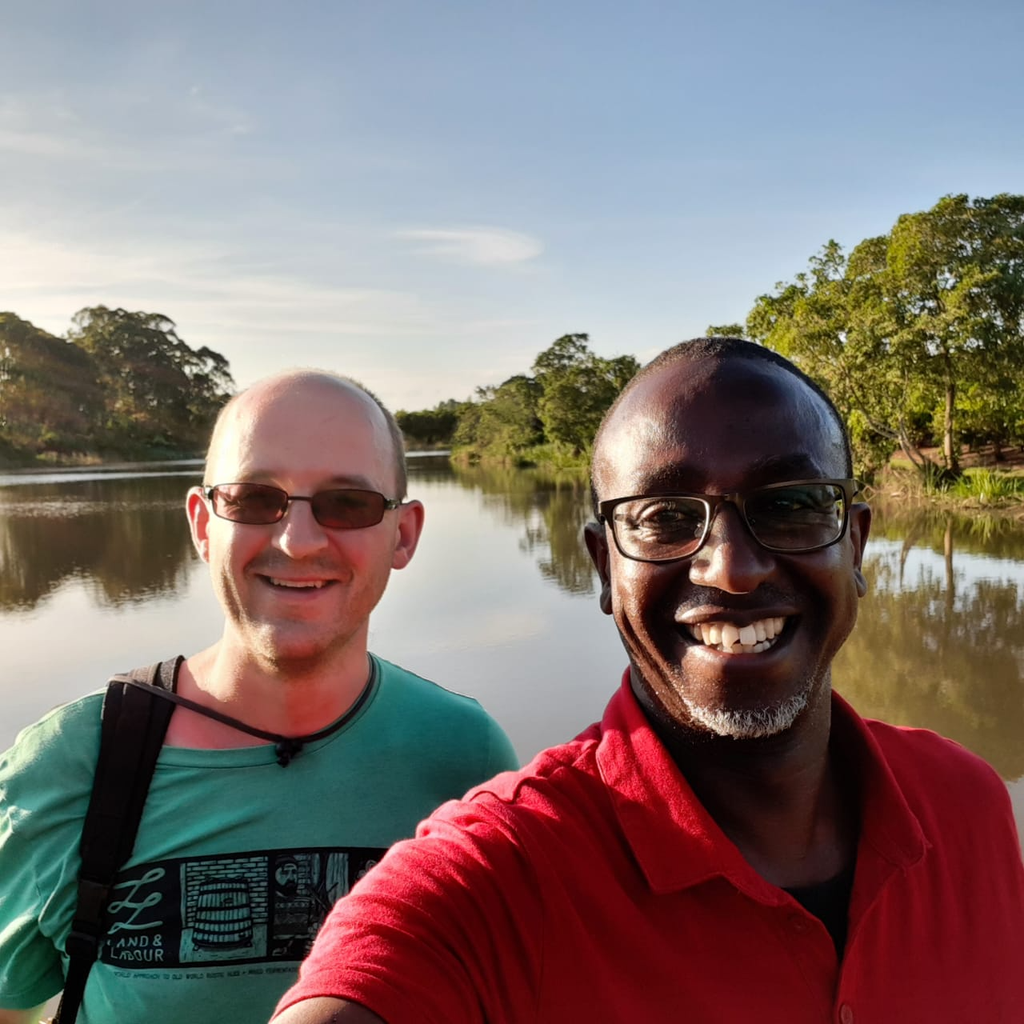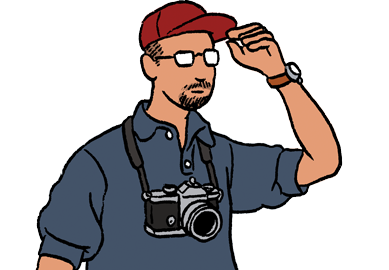The first coffee bush at Kiriga Estate was planted in approximately 1954 by colonial settlers. At about the same time, less than ten kilometres away along the same Kigio road, a young boy (Aloysius Gakunga, son of the chief for the larger Murang'a county) helped his father – Senior Chief Ndungíu Kagori – plant the first coffee seedling in the area. The area was known as Gaitegi village, Muranga Location 1 (Loco One). A love affair with coffee had been born!
Several years went by and the young boy grew up. He was riding his bicycle along Kigio road and, as he rode past the vast – by now well-established – coffee estates, he promised himself that he would one day own one of them.
He realized this dream in 1976.
The boy, or Mr A. N. Gakunga, sadly passed away in July 2014. By the time of his death, Mr Gakunga had passed his love of coffee and the mantle of Kiriga coffee estate on to Dr Brian Ndungíu Gakunga. Brian was his second child, and the eldest son out of his six children. According to Kikuyu cultural naming systems, Brian is named after Mr Gakunga's father, who was both his grandfather and his pioneer coffee farmer.
- Dr Brian Gakunga is a coffee farmer who is well known in Kenyan coffee circles. He is a founding member and a former long-serving Honorary Secretary of the Kenya Coffee Producers Association, which is a national farmers' organisation that works to promote the economic and social interests of the coffee farmers through active participation in the national and international arena.
- Brian is also a former Board Member and Chairman of Transitional Exchange Committee (operationally, he was the then-Chairman of Nairobi Coffee Exchange), where over 90% of all of Kenya's coffee is currently sold. He's also currently the Founding Chairman of Africa Coffee Farmers' Network.
- Africa Coffee Farmers' Network represents the interests of coffee farmers, as spelt out in the organisation's core objective of improving the earnings of poor coffee farmers in order to break the vicious cycle of poverty. One way of doing this is by getting direct sales for the farmers.
Kiriga Estate sits between 1,550 and 1,650 metres above sea level. It is approximately five kilometres from Thika town, which is an industrial town in the central province of Kenya. It's four kilometres from Blue Posts hotel, which has the famous Chania and Thika falls. Thika lies 50 kilometres northeast of Nairobi.
Administratively, Kiriga coffee estate is in the Gatanga constituency of Muranga county, and it's separated from Kiambu county by the Chania river.
Kiriga coffee is predominantly SL28 variety (notable for its world-renowned cup quality). The farm has an estimated two hectares of Ruiru 11 variety (which has improved resistance to coffee berry disease and leaf rust); some K7 variety (similar characteristics as SL28, but with better resistance to leaf rust compared to SL28); and a field of the newest Batian variety. About 60% of the coffee that the estate produces is AA/AB.
All coffee activities at Kiriga are carried out at a factory level, from the coffee nursery to all the farm operations (pruning, weed control, nutrition, irrigation, basin digging, disease control, infilling, mulching, and planting). Wet mill operations are also carried out on the factory level. Kiriga delivers both parchment coffee and Mbuni (naturals) to the commercial dry mill for milling and grading, in preparation for sale at coffee auctions and via indirect sale.
In addition to growing coffee the estate also has shoats (sheep and goats), a dairy, and the potential to keep fish. It's all about diversity, and what's more diverse than a 'shoat'?! The estate is also occasionally visited by two hippos, in addition to some bird-life, while also being the home of a family of monkeys.
Kiriga irrigates all its coffee trees – despite the crippling electricity costs involved – during the dry season, in order to ensure their high standards were maintained despite the weather.
By the end of 2015, the estate had changed the cycle of its coffee trees by removing the old heads and growing new heads, which in return gave a higher yield of bold beans with the characteristic 'Kiriga coffee characteristics'. Over 40% of the 'old heads' had to go! This is way above the recommended 25%, and we expect to have decreased yield but increased quality as a result.
Many of the estate farms around Kiriga have been sold off to make housing estates. Whilst this is a challenge for the future, in the immediate period Brian is actually finding it helpful because there are more skilled pickers available (who were working on the other farms).

